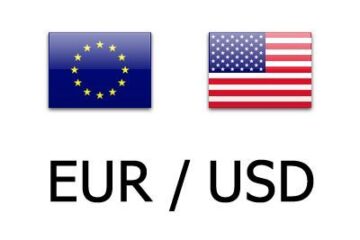Rivian-built Amazon vans have already delivered more than 800 million packages to U.S. customers.
As of June 30, Amazon was Rivian’s largest shareholder, holding a stake of 15%, or 158.4 million shares. In July the e-retail giant affirmed its partnership with Rivian (RIVN) to purchase 100,000 of its electric vans by 2030.
💸💰 Don’t miss the move: Subscribe to TheStreet’s free daily newsletter 💰💸
But shortly after Amazon’s (AMZN) announcement, Rivian paused production of the electric commercial van made for Amazon in August due to a parts shortage.
Parts shortages are common in the industry, a Rivian spokesperson told Bloomberg in August. But this shortage likely has broader impacts, affecting the R1 and RCV platforms and prompting Rivian to trim its full-year production guidance in October.
Related: Rivian’s profit target may reset after production update
The electric-pickup maker is now estimating annual production at between 47,000 and 49,000 vehicles, down from 57,000 units, which it had affirmed in August.
“This supply-shortage impact began in Q3 of this year, has become more acute in recent weeks, and continues,” the company said in a statement.
Rivian stock is down more than 56% year-to-date.
What to expect from Rivian’s Q3 earnings
Rivian Automotive is scheduled to report third-quarter financials on Nov. 7. For the year-earlier third quarter Rivian posted a loss of $1.37 billion, or $1.44 a share. Revenue was $1.34 billion. Rivian produced 16,304 vehicles in Q3 2023.
In the second quarter, it outperformed Wall Street’s forecasts, posting a loss of $1.13 a share and automotive revenue totaling $1.16 billion.
In August, Rivian projected a full-year adjusted loss before interest, taxes, depreciation and amortization of $2.7 billion and capital expenditures of $1.2 billion. The company said it expected to achieve positive gross margins by Q4 2024.
Related: Analyst reboots Rivian Automotive stock price target on revised growth plans
Rivian has been aggressively cutting costs. At an investor event in June, Chief Executive RJ Scaringe said it planned to reduce materials costs by 20% on existing vehicles and by 45% on the upcoming R2 models, CNBC reported.
“We’re very, very fast driving towards the improvements necessary to get to positive free cash flow and, before that, positive margins this year,” Scaringe said.
Rivian produced 13,157 vehicles and delivered 10,018 in Q3, bringing its 2024 totals to 36,749 units produced and 37,396 delivered.
Meanwhile, Tesla (TSLA) holds its market dominance. In the third quarter, Tesla delivered 462,890 vehicles, a 6% year-over-year increase.
Analysts revise Rivian stock price targets
A number of analysts reduced their stock price targets on Rivian before its earnings results.
Mizuho analyst Vijay Rakesh lowered his target to $12 from $15 on Nov. 4 with a neutral rating as electric-vehicle demand remains challenged, thefly.com reported.
While recognizing what he called Rivian’s promising roadmap — including the lower-cost R2 model slated for early 2026 — and improved liquidity from a deal with Volkswagen (VWAGY) , the investment firm remains cautious, signaling a potential cooling of demand in the U.S. EV market.
D.A. Davidson maintains a neutral rating and a $13 price target on Rivian ahead of its Q3 results, while lowering its fiscal 2024 revenue forecast to $4.73 billion from $5 billion.
The adjustment reflects expected Q3 production shortfalls and ongoing supply-chain challenges affecting Q4. But Rivian’s newly unveiled Scout product, offering more range at a lower price than the R1, could bolster appeal, according to the analyst.
On Oct. 21, RBC Capital lowered the investment firm’s price target on Rivian Automotive to $14 from $15 with a sector perform, effectively neutral, rating.
RBC noted that the auto sector has seen declines, and it said further downside risk remains as many investors question whether a deflationary period is emerging after postpandemic price hikes.
For Rivian, weaker Q3 delivery figures could lead management to withdraw its Q4 gross-profit guidance, RBC Capital added.
RBC Capital is concerned about Rivian’s partnership with Volkswagen. VW committed $1 billion up front, with plans for up to $4 billion more, but RBC questions whether VW will follow through. The German automaker recently posted a 42% profit drop for Q3.
Rivian shares closed at $10.29 on Nov. 4. The stock is down more than 56% year-to-date.
Related: Veteran fund manager sees world of pain coming for stocks


